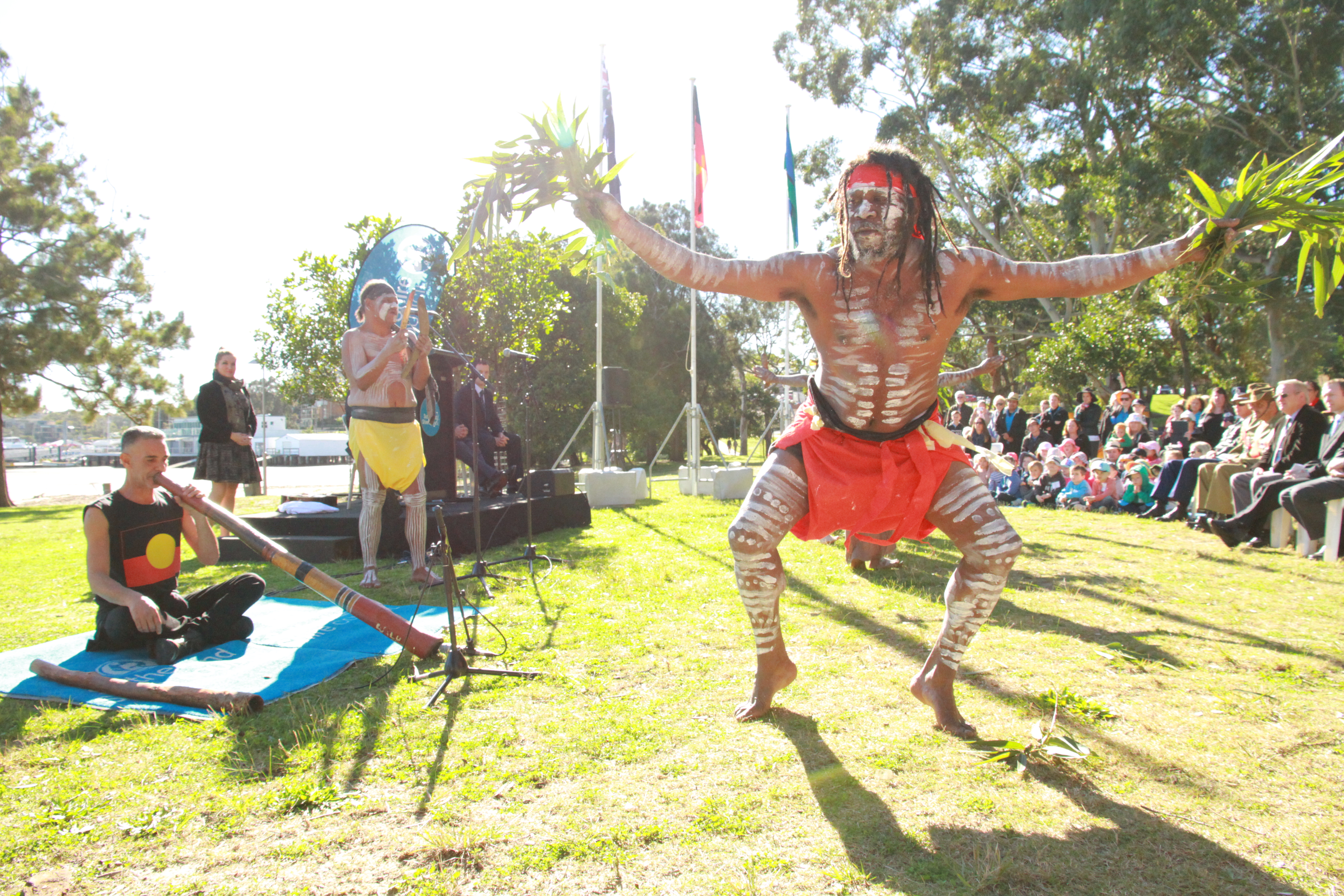
Protocol
If your event includes official proceedings and you require the presence of the Mayor or a Councillor, you must follow certain protocols.
The Dharawal-speaking people are the traditional custodians of the land in Sutherland Shire and they should be recognised in the form of a Welcome to Country or Acknowledgment of Country.
A Welcome to Country is conducted by a traditional Aboriginal custodian or Elder. This occurs at the opening of an event. Representatives from La Perouse Local Aboriginal Land Council conduct Welcome to Country at events in Sutherland Shire. This is usually reserved for events or ceremonies with official proceedings.
Acknowledgement of Country is a way for everyone attending an event to show respect to the traditional owners of Country. An Acknowledgement can be performed by any individual, Aboriginal or non-Aboriginal. The suggested wording for an Acknowledgement of Country is: "I would like to acknowledge the living culture of the Dharawal people, the traditional custodians of the land we stand on, and pay tribute to the unique role they play in the life of this region."
Read more about the Welcome to Country and Acknowledgement of Country.
Crowd control
Crowd densities may vary between day and night, by season, and may be temporary. Event organisers are responsible for providing appropriate security and crowd control measures.
All owners and operators of crowded places have a responsibility to protect the sites, including a duty of care to protect people who work, use or visit the site. This includes a range of foreseeable threats, including terrorism. Find out more from Australian National Security.
In some instances, you may need to arrange additional security to assist with crowd control. If you employ security personnel, they must be adequately briefed by the organiser and be experienced in crowd control. If alcohol is served at the event, security personnel must be RSA trained. At the conclusion of the event, security must remain on duty until all patrons leave.
Our recommended ratio is two security personnel for the first 50 patrons, and another for every additional 50 patrons. Volunteers and support staff are not included in this security-to-attendee ratio.
Crowd management in your risk assessment should cover:
- venue entry and exit points
- the provision of alcohol
- the use of licenced security guards
- communications with attendees.
For all major events, the following emergency services must be notified one week in advance:
- NSW Police - Sutherland Police Area Command 02 9542 0754
- NSW Fire & Rescue - info@fire.nsw.gov.au or 02 9265 2999
- Ambulance Service of NSW - ambulance-eventplanning@health.nsw.gov.au or 02 9799 3833.
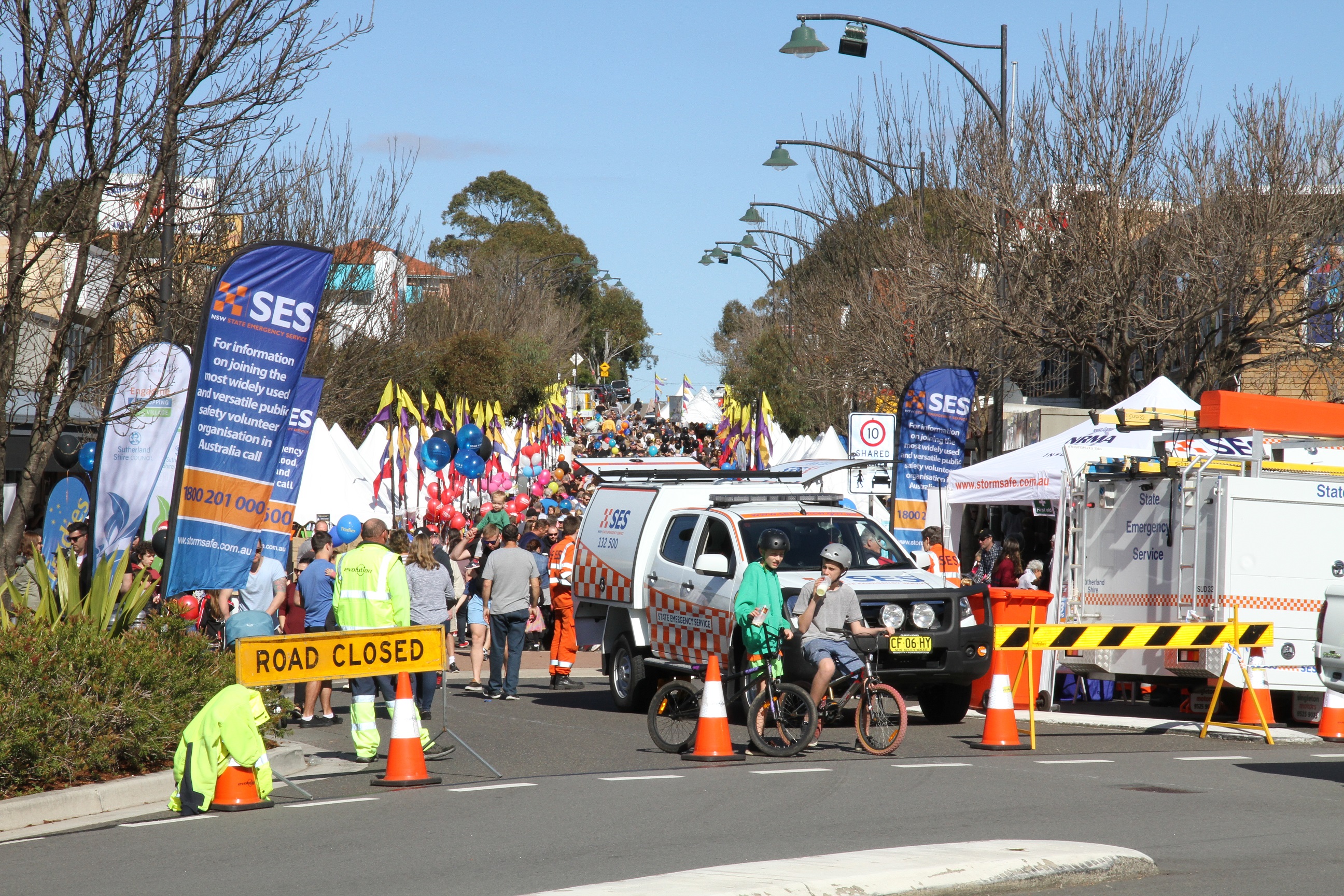
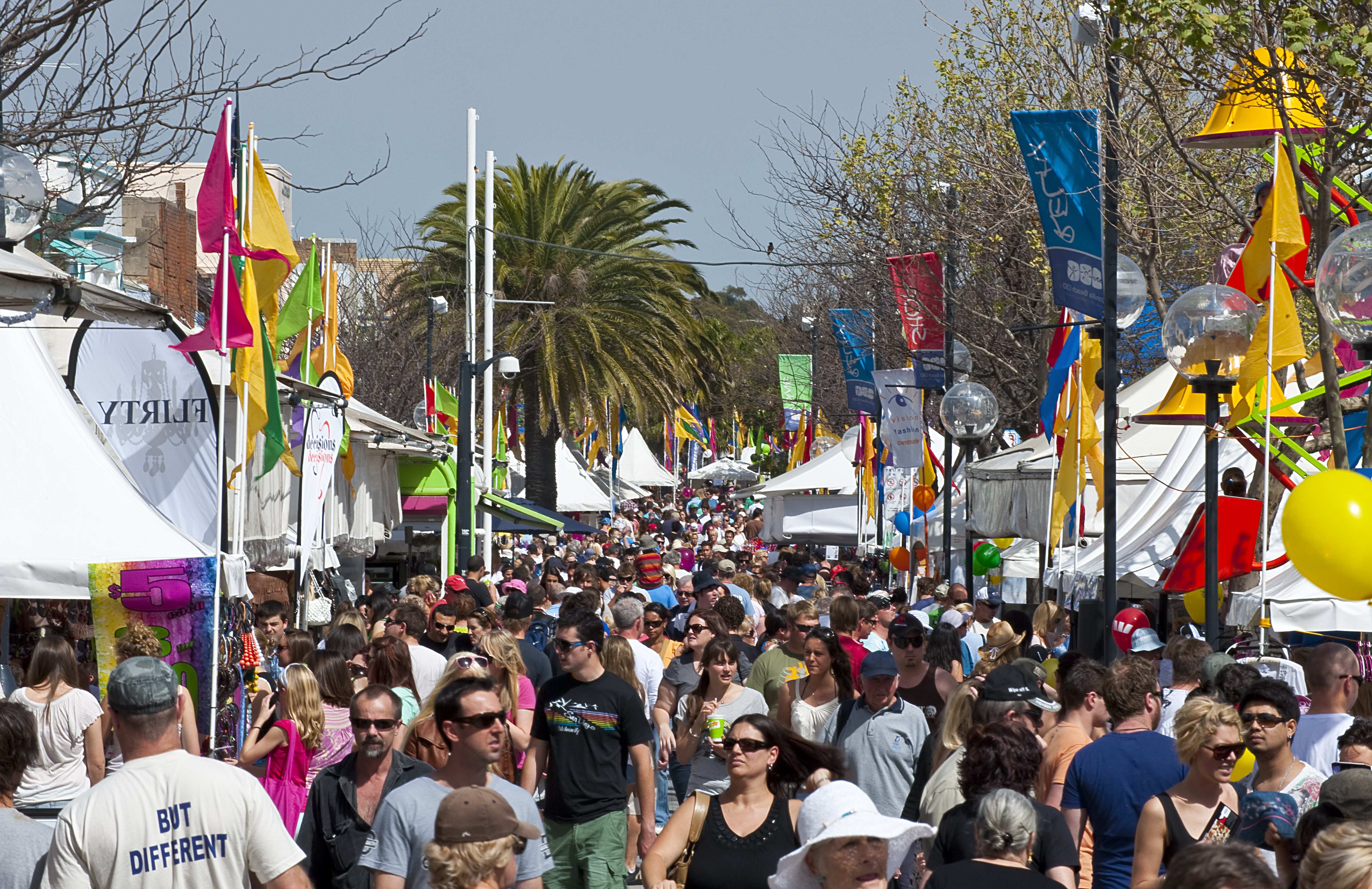
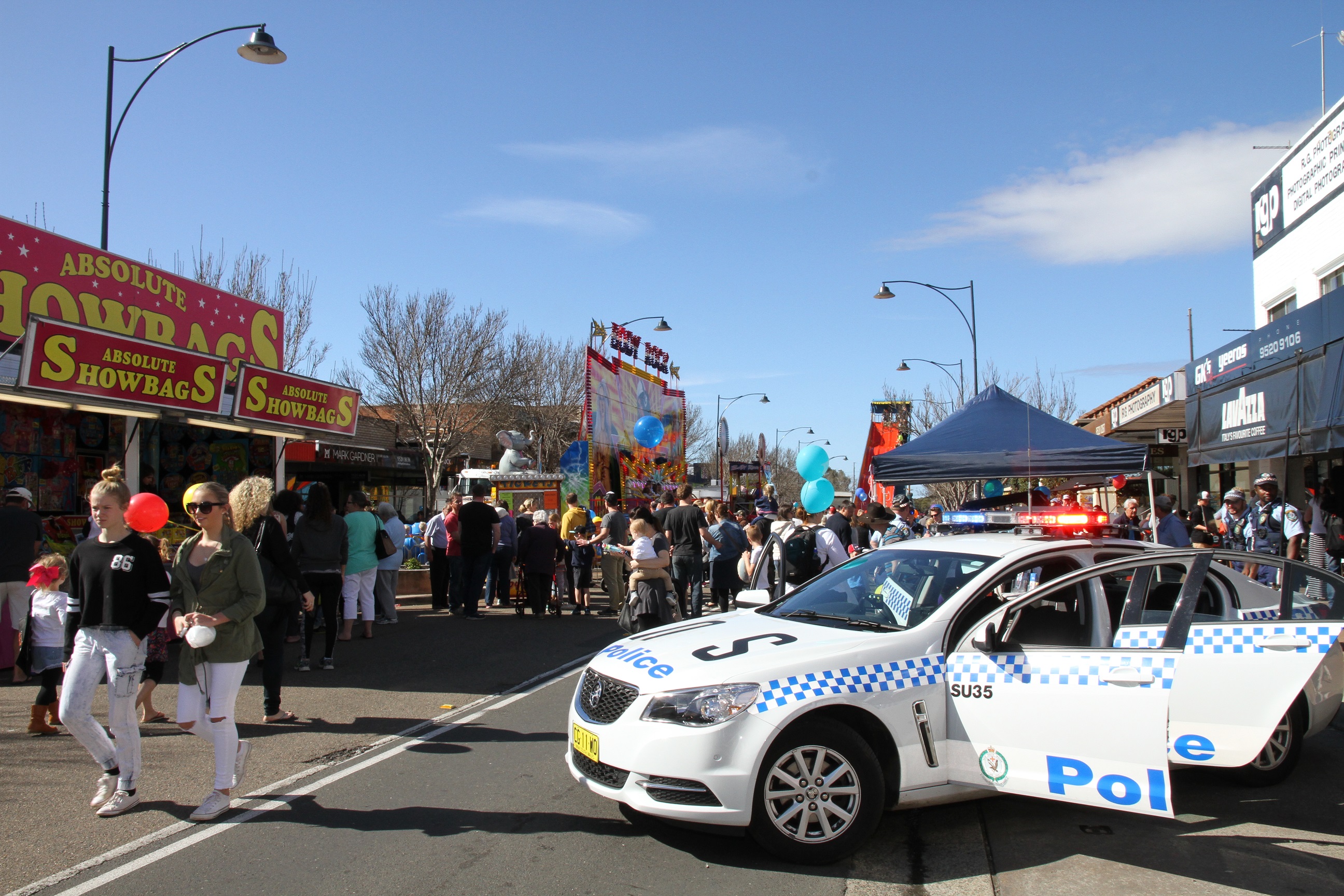
Traffic management
Parking
Public car parks can be used for event parking. Event vehicles must remain parked in existing parking bays. Vehicles should not drive across (or park) on parks, reserves or playing fields, unless given permission. Changes to parking restrictions and parking permits are reviewed on a case-by-case basis.
Pedestrians
All vehicles entering event sites are to be escorted on site at walking pace and must use flashing hazard lights.
Road and car park closures
If your event requires the use, closure or partial closure of a public road or car park, you will need to provide a Traffic Management Plan (TMP). You should employ the services - and pay all costs - of a traffic management company to develop this plan. We can provide a list of suppliers upon request.
For major road closures, the TMP should be submitted four months before the event. Major road closures are assessed by our Traffic Committee, which consists of Roads and Maritime Services (RMS), police and Council staff.
The management and closure of roads is covered in the Roads Act 1993 and the Road Transport (Safety and Traffic Management) Act 1999. The NSW Government's Guide to Traffic and Transport Management for Special Events provides further information. RMS approval is required for events held on state roads.
Noise 
You must monitor noise levels produced by your event to minimise disruption to local residents and businesses. Music, amplifiers, refrigerators, generators and crowds contribute to noise at events. Amplified sound must comply with the Protection of the Environmental Operations Act 1997.
You may need to develop a Noise Management Plan for major events that use multiple stages, speakers or public address. This should consider site orientation, barriers, the direction, height, size and power of speakers, sound limiting devices and neighbour notifications.
Provide neighbours with a contact number for the event manager to address any complaints.
We recommend not using a public address system or amplified music from 10:00pm to 7:00am.
You may be issued with a warning or fine if your event generates offensive noise.
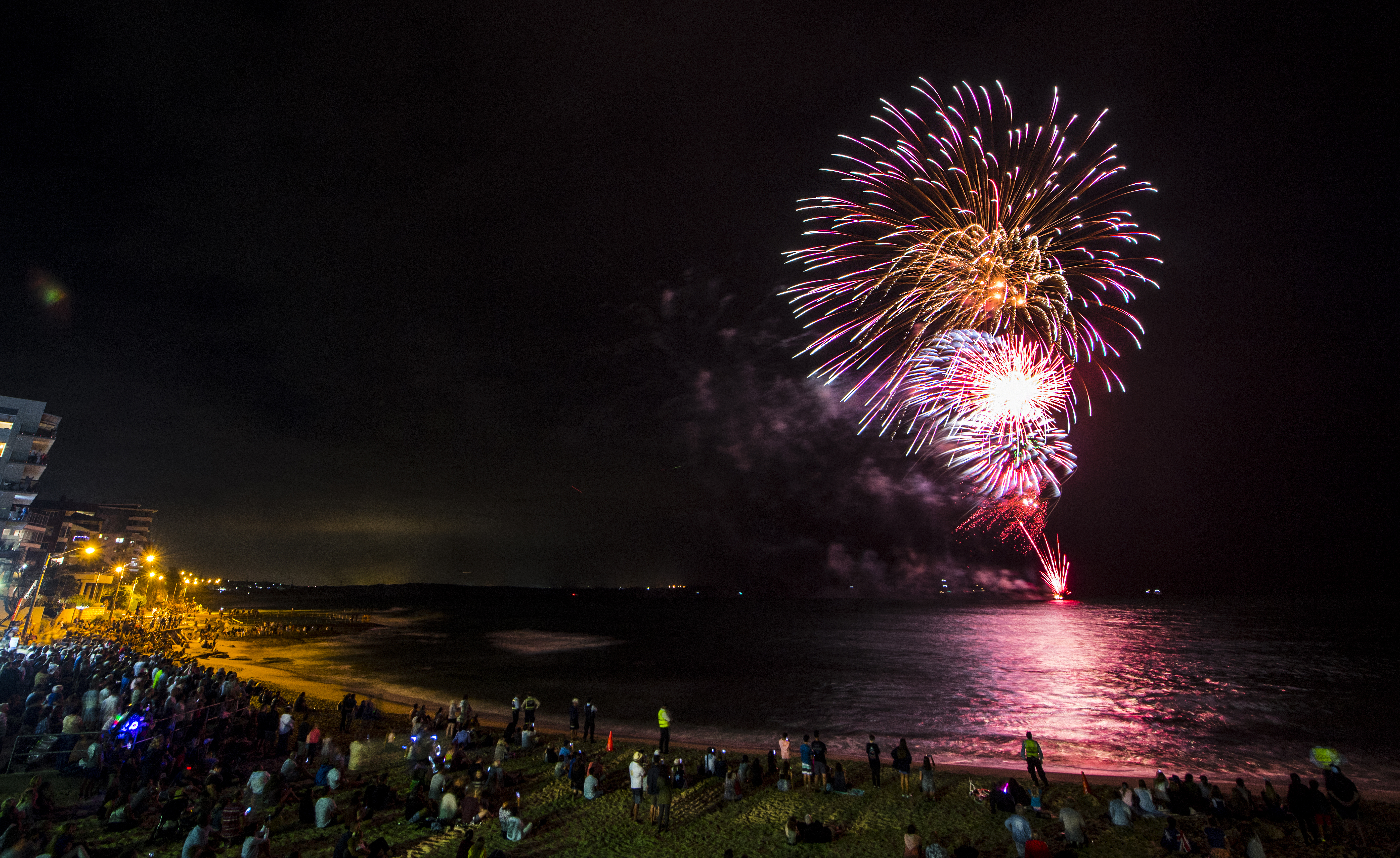
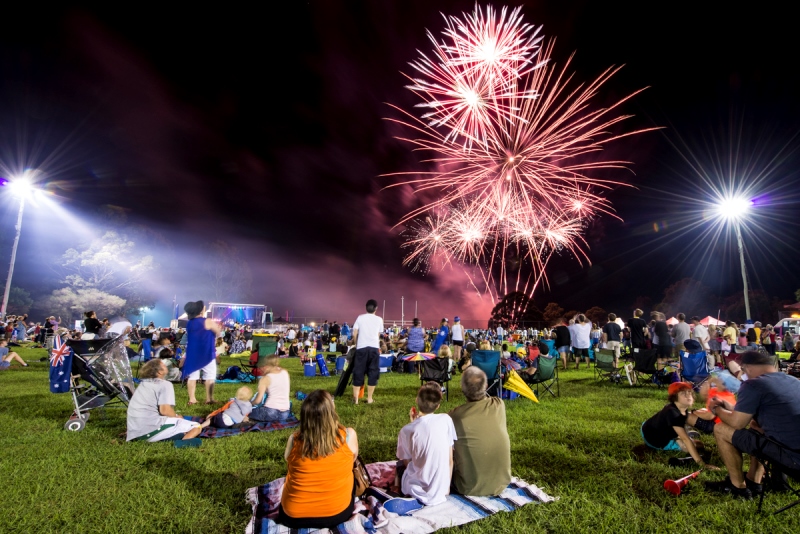

Fireworks
SafeWork NSW regulates the planning and authorisation of fireworks displays. You must give seven days' notice to SafeWork NSW prior to a fireworks event.
If you are planning on conducting a fireworks display at your event, you must provide us with:
- a SafeWork NSW notification issued under the NSW Explosives Act 2003
- current SafeWork licences
- a pyrotechnic Certificate of Currency for public liability insurance
- a job safety assessment
- an environmental analysis and risk assessment
- proof of workers' compensation insurance
- neighbour notification (within a 500m radius of the event site).
Aquatic
An aquatic licence may be required for organised activities on or in navigable waters.
Environmental impact
Consider the environmental impact of your event including:
- travel and transport activity
- food and drink consumption
- event-related energy and water consumption
- production of waste.
You should encourage lower carbon emissions by promoting public transport.
Reduce waste and non-recyclable packaging, and offer food and drink produced locally.
An Environmental Impact Statement is required for large events.
Community consultation
You must tell us how you intend to notify residents and businesses in the vicinity. A letterbox drop is the usual method, no less than a week before your event. If local businesses will be impacted, you should contact them before lodging your application and advise the:
- type of event and planned activities
- date
- times
- location
- contact details.
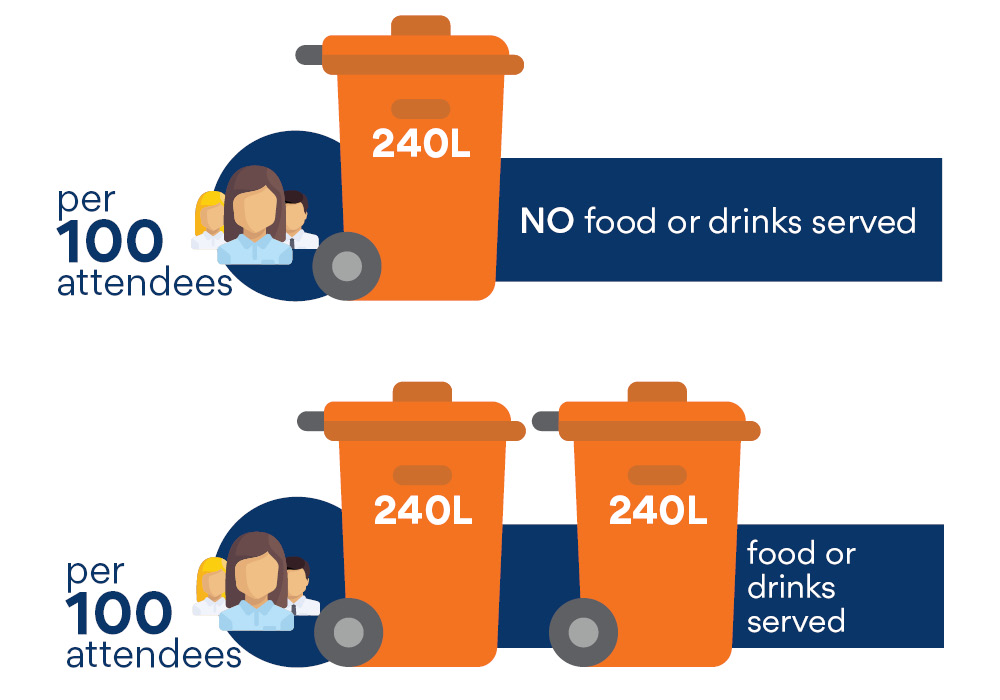
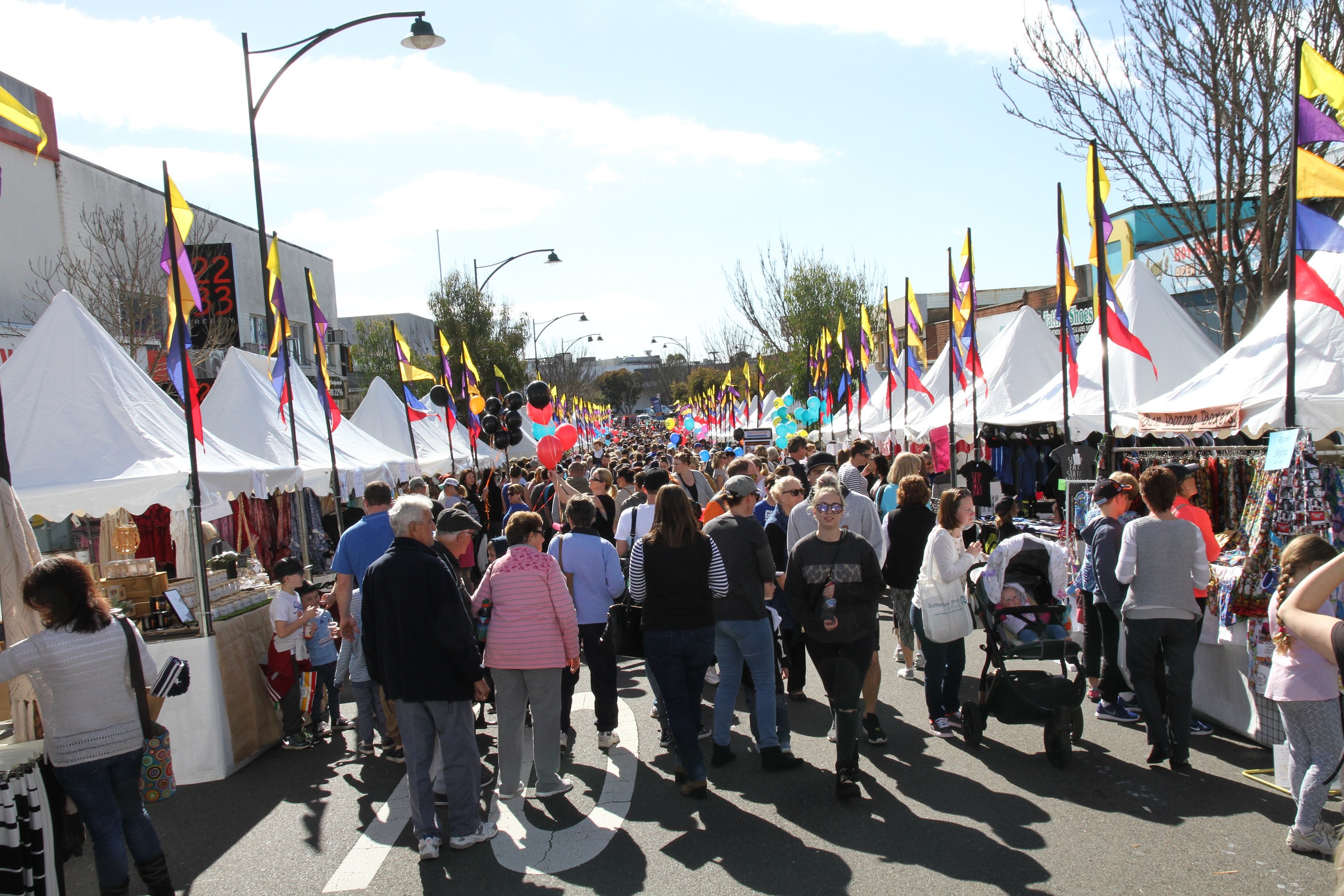
Waste
The number of bins you need is determined by the nature of the event and the number of attendees.
Our suggested ratios are:
- One 240L bin for every 100 attendees if no food or drinks are served
- Two 240L bins for every 100 attendees if food or drinks are served.
A Waste Management Plan is required for all events. This should include your waste reduction strategies and details regarding:
- bin locations (on a site plan)
- the emptying of bins
- the types of packaging to be used
- cleaning during the event
- stallholder compliance.
Events areas must be left clear and clean or a fee will be charged. The NSW Environment Protection Authority (EPA) provides information about how to run ‘waste wise’ event and how to comply with the Waste Avoidance and Resource Recovery Act 2001.